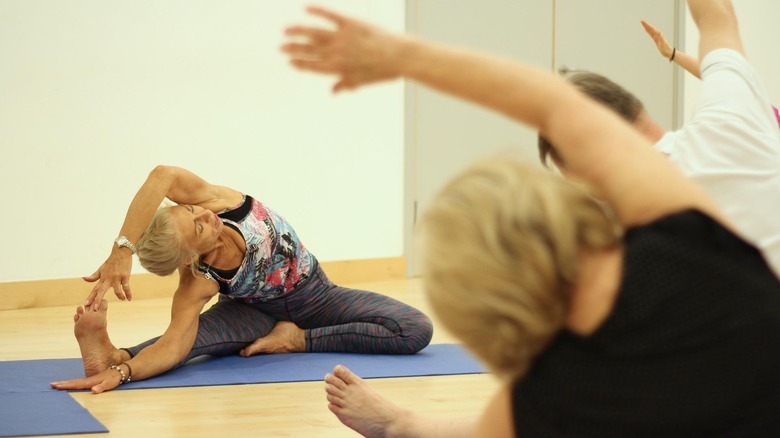Naturopathic Doctor Natasha Vani On Managing Chronic Disease With Habits And Smartphones - Exclusive Interview
Natasha Vani has always been interested in the way that nutrition and movement impact health. Vani was always an athletic, and when she made it to college, she decided to study kinesiology. From there, Vani went on to get her Masters is exercise physiology. As she worked with people one on one, Vani learned firsthand how the foods we eat and the way we move our bodies help us foster and maintain health, which sparked her interest in naturopathic medicine.
Naturopathy focuses on the body as an entire system rather than a collection of parts experiencing symptoms. It also seeks to find the underlying causes of disease rather than simply treating the symptoms. One of the keys to this approach is understanding how lifestyle fuels disease and lifestyle changes can treat disease. Vani loved this approach, so she pursued a degree in naturopathic medicine.
She then became one of the very early adopters of telemedicine, working with a company called Newtopia. The platform initially helped people understand nutrition and movement as a way to prevent disease, which was a perfect fit for Vani. As the company evolved, they started to work on a mobile platform to help people implement lifestyle changes to manage chronic health issues like diabetes, back pain, heart disease, high blood pressure, and mental health issues.
In an exclusive interview with Health Digest, Vani explained how Newtopia keeps people engaged with their health and helps them make lifestyle changes that stick.
Finding a different way to treat disease
Can you tell us a bit about your background and why you chose to study kinesiology and movement?
My first love was athletics. In my younger years, most of my time was spent training, traveling and competing. I was always in the gym and completely fascinated with anatomy, nutrition and biomechanics. Kinesiology was a natural fit. In university, I became a personal trainer, strength and conditioning coach, and completed a degree in athletic therapy, which involves injury prevention and rehabilitation. I then continued with a Master's degree and became a licensed exercise physiologist.
What made you decide to pursue Naturopathy after getting your Master's degree in Kinesiology and Health Science?
During my graduate work, my clinical hours involved studying and testing the aerobic capacity of professional athletes and those in high-performing occupations such as firefighters. We also studied the complete opposite — those with chronic disease, primarily heart and/or lung disease. This experience and comparison showed me the value [of] nutrition, movement, and general well-being play on preventing and treating disease, as well as achieving optimal health and even further, elite performance. After a few years of work experience and more exposure to the general population, I discovered Naturopathic Medicine.
At its core, Naturopathy involves treating the underlying cause of disease, rather than simply suppressing the symptoms with medication. It also involves seeing disease as a process impacted by our lifestyle, rather than as an entity. Lifestyle plays such an important role in our overall health especially as it pertains to heart disease and diabetes. It was a perfect match.
Virtual management of chronic disease
How long have you been in the online healthcare industry?
I've worked in the online healthcare industry for nearly 20 years. I currently balance online education and training with in-person patient care.
How has the online healthcare industry changed since you started out?
There has been tremendous growth in the ease and accessibility for scheduling, meeting, providing online resources, and reviewing labs and biometrics. I've found many patients feel more empowered and encouraged with a greater sense of control over their health. It also has allowed for better care in those with limited transportation, accessibility or time to attend in-person care.
How did you get involved with Newtopia?
I was introduced to Newtopia and CEO and founder Jeff Ruby by a former colleague whom I had worked with in my private practice and previous online health company. When I joined, we were one of the first companies integrating nutrition, exercise and well-being, and the preventative focus of the organization was very appealing.
That commitment has grown into preventing, slowing, and reversing chronic disease. Our personalized programs combat the onset or slow/reverse development of key chronic conditions including: heart disease, diabetes, mental health disorders, hypertension, weight management and musculoskeletal conditions. I'm very proud to be part of that.
How does Newtopia help people manage chronic conditions like hypertension, diabetes, and mental health struggles?
Newtopia uses lifestyle intervention in the areas of nutrition, exercise, sleep, stress and overall well-being. We develop awareness of habits through tracking, coaching and wearable devices. We then educate and facilitate behavioral change by using cognitive behavioral techniques as well as mindfulness-based techniques. The Newtopia experience also personalizes the participant's journey with 1 on 1 coaching, personality-matched coaching, app and tech support, and behavioral genetics.
Each participant is paired with a dedicated health coach or Inspirator, who takes time to learn their unique well-being needs, challenges, preferences and even their genetically motivated behaviors and personality type. Influences such as family health history, social determinants of health and lifestyle are all taken into consideration in creating a personalized wellbeing plan that reflects the whole person, leading to improved physical, mental and emotional outcomes.
Changing habits to manage chronic disease
How do sustainable, long-term health habits impact chronic disease?
The most common chronic diseases that impact our personal health and healthcare system include: heart disease and stroke, hypertension, hypercholesterolemia, type 2 diabetes, and some forms of cancer.
These conditions are known as "lifestyle" diseases, as they heavily relate to our daily habits around nutrition, exercise, and wellbeing and are largely preventable. In fact, the CDC has recently identified the four main preventable risk factors: tobacco use, poor nutrition, lack of physical activity and alcohol use. Achieving and sustaining healthy habits around these key areas is the solution to prevent, reverse and manage chronic disease.
If left unchecked, physical and mental risk factors continue to evolve and result in high costs of healthcare for all of us. It's more affordable for individuals, and the employers and health plans we work with for everyone to be as healthy as possible.
How does the Newtopia app help keep people engaged in taking care of their health?
The Newtopia app keeps people engaged with 1 on 1 chat and video call support, the ability to track habits, set personal goals, schedule appointments, and enter and review biometrics. It also contains a large content library including video, PDFs and recipes. The app syncs with wearable devices and native Android and iOS health apps.
How is Newtopia using genetic testing to help people manage chronic illnesses and mental health?
Newtopia uses genetic testing to gain greater insight into the behaviors that an individual may have around nutrition, exercise, sleep, and stress. These insights allow our coaches to provide personalized and actionable recommendations so participants can reach their goals faster and with greater ease.
Newtopia just launched a new engagement platform and brand refresh, which includes a state-of-the-art participant experience and streamlined website. Check out a video demo of their new app.
This interview has been edited for formatting.



